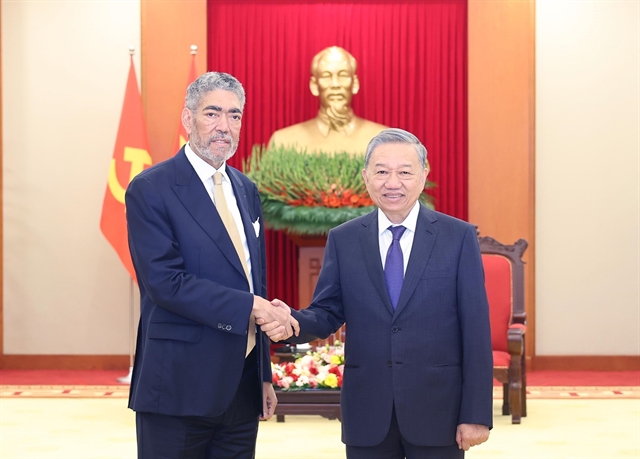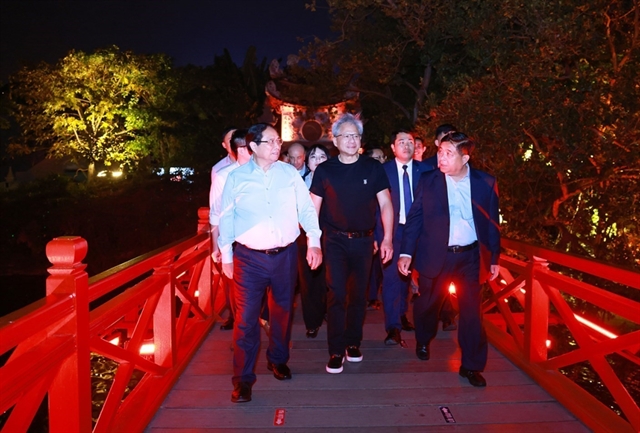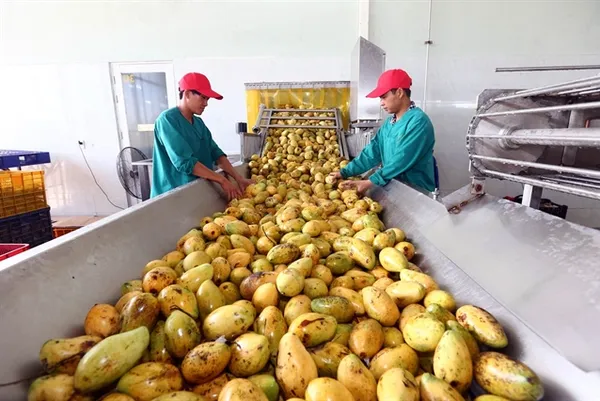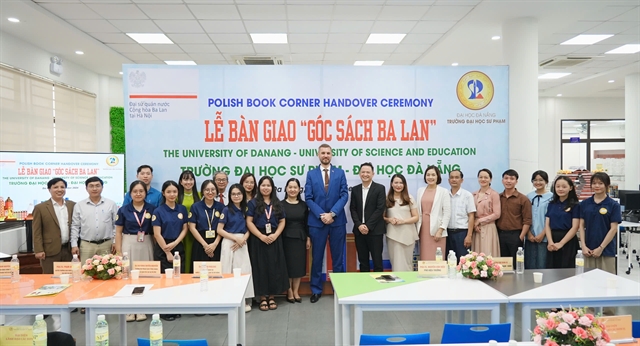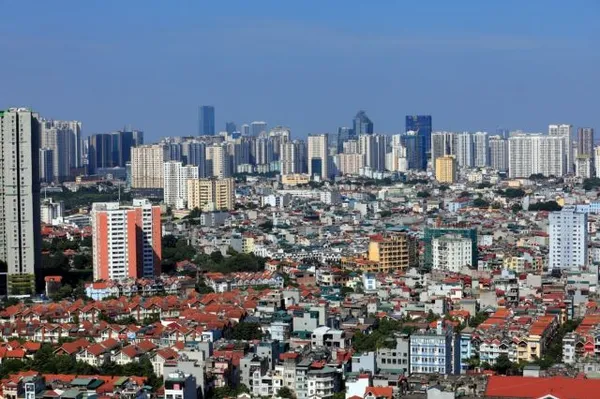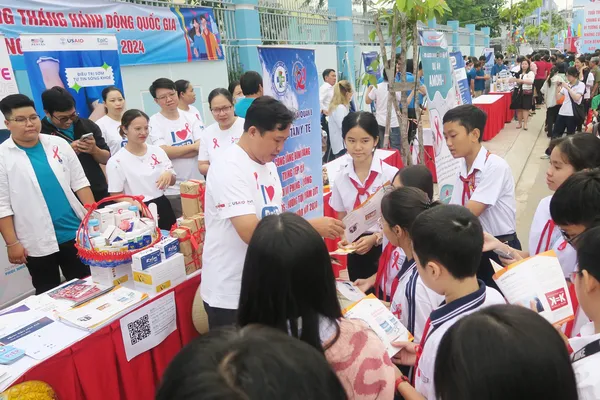

There is a special park for turtles in the northern province of Ninh Bình. People from Germany come to the park to help look after the turtles and make sure that their eggs hatch.
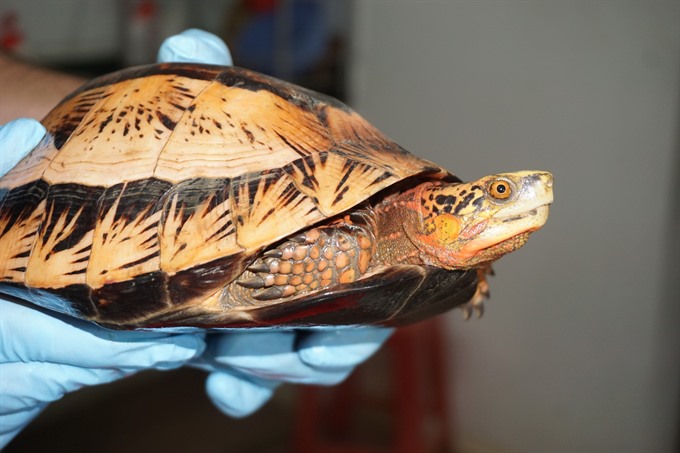 |
| Shell dweller: An Indochinese box turtle. Photo courtesy of Nguyễn Thu Thủy |
There is a special park for turtles in the northern province of Ninh Bình.
Some of the types of turtles that are kept there are in danger of disappearing forever.
People from Germany come to the park to help look after the turtles and make sure that their eggs hatch.
They love Việt Nam’s environment and landscape but they worry that many buildings are being built and that one day it may not be as easy to feel close to nature as it is now.
By Lê Hương & Hồng Vân
Taking trays containing freshly ground paste of vegetables and fruit, Lina V. Wedel and Simon Brauburger head for nearby enclosures to feed the turtles, one of the important tasks they perform every morning.
They chat while putting the trays in the feeding areas, without forgetting to take a quick look at the turtles swimming in the small ponds or crawling on the banks.
The Cúc Phương Turtle Conservation Centre (TCC) in Cúc Phương National Park is home to some 1,000 turtles of 30 domestic and foreign species. The park is in the northern province of Ninh Bình, some 120km east of Hà Nội.
Wedel takes a deep breath, filling her lungs with the moist air of the forest in the early morning.
She and Brauburger have been working at the centre as volunteers for nine months so far. Every single day, they learn new and interesting things.
Today they find two new eggs on the ground in the enclosure of a black-breasted leaf turtle, the smallest turtle species in Việt Nam.
Wedel gently places the eggs in a box filled with vermiculite (a kind of soft material facilitating incubation) to bring them to a room for measurement while Brauburger takes photos. The eggs are then carefully marked with a pencil before being put in the incubation room.
“It’s not the first time that I’ve gathered turtle eggs,” she tells Việt Nam News, “But I still get really excited when there are new ones. This means that the turtles are doing well and that we’ll probably have some more individuals of turtle species that are almost extinct in the wild.”
They continue their busy morning checking the hatchling records, checking the incubator’s temperature and humidity and transferring newly-hatched turtles to a special room.
Some groups of tourists may drop by, breaking the centre’s tranquil atmosphere. The sounds of cicadas are joined by gasps and choruses of “wow” as the visitors admire the animals and the careful work done by the volunteers. Some tourists wander off to buy souvenirs in the exhibition room.
“I really like working here because I have so many different tasks and there’s always something to do,” says Brauburger, “The tasks can be exhausting sometimes, but I feel happy using my time and energy for this project.”
Wedel says her work at the centre is a good combination, because she can support the vital work while learning lots of different things for herself.
Both volunteers are taking a gap year before entering university.
While Wedel is now sure of wanting to pursue veterinary medicine after working at the centre, Brauburger will continue with physics.
“I chose to go to Việt Nam because it has unique wildlife, wonderful nature and loads of breathtaking landscapes that are still largely untouched,” Wedel says, “Thus it seems to be our last chance to take action to save nature and the animals.”
She says it’s great to see how many Vietnamese people, even whole school classes, come to the centre to educate themselves about endangered species.
“But in contrast, their indifference about nature is shocking,” she says, “It’s hard for me to understand why people throw rubbish right on the grass or street when they could just keep it for five minutes to throw it in a bin later.”
Mathew Armes, a Master’s student from Germany has been doing research on the Vietnamese Pond Turtle at the centre for seven weeks. He comments that Việt Nam’s environment and landscape is beautiful and attractive to tourists but he worries that the natural beauty will be lost because of increased urbanisation and other factors.
“I look through data collected about the turtle species and use it to predict captive population growth rates,” he says, “I also look at hatchling growth rates and catch turtles to look at their internal parasites using a microscope. What I can say is that hatchling turtles bred at the TCC show consistent growth and gain weight every month.”
“Everyone at the TCC works hard to care for the turtles and keep the TCC running as smoothly as they can from caring turtles to visitors. TCC do a good job,” he adds.
A long struggle
The TCC is among the oldest conservation centres in the country, and has been running for nearly 20 years.
The centre receives turtles that have been seized from illegal trades and donated by individuals and agencies.
“The endangered species at the centre take a long time and great care to produce a new generation,” says Đỗ Thanh Hào, manager at the TCC, “Some species give birth to only one egg a year or even produce no eggs at all. Then it takes 3-5 months for the eggs to hatch. A small hatchling will live in a special-care enclosure for five years to get mature enough to be transferred to normal care enclosures.”
“The TCC takes great care over the food, humidity and sunlight for forming stable shells and the population of turtles in one enclosure,” says Nguyễn Thu Thủy, Việt Nam Turtle Programme Co-odinator of Indo-Myanmar Conservation’s Asian Turtle Program, which has been co-ordinating with the TCC.
“Around 60 hatchlings have been born at the centre since the end of 2016,” she says.
“Our ultimate aim is releasing the turtles back into nature,” Hào says.
Asia hosts one-third of the world’s turtles.
Since the 1980s, scientists have highlighted a serious decrease in Asian turtles due to hunting and trading activities.
On average, more than 10,000 tonnes of turtles are smuggled every year.
“Việt Nam used to be part of the illegal smuggling route, but now the country is also a market for the sale of turtles,” Hào said.
“People like to keep turtles at home as a holy pet, they also consider turtles nutritious food and a good material for eastern medicine,” he said.
Though the TCC is not a national conservation centre, with its long history, the centre has been active in sharing conservation experiences with newly-established centres.
The conservation tasks of the TCC have been made easier over the last few years thanks to better awareness among the public.
The centre has offered various training courses to forest rangers, students and researchers.
Though funded through the State budget, the centre has received various sponsorships for incubation facilities and materials as well as uniforms for staff, Hào says.
“We receive two volunteers from Germany every year and regular researchers, who make considerable contributions to the centre’s ongoing work,” he says. — VNS
GLOSSARY
Taking trays containing freshly ground paste of vegetables and fruit, Lina V. Wedel and Simon Brauburger head for nearby enclosures to feed the turtles, one of the important tasks they perform every morning.
Enclosures are areas with walls or fences around them.
Tasks are jobs.
They chat while putting the trays in the feeding areas, without forgetting to take a quick look at the turtles swimming in the small ponds or crawling on the banks.
Crawling means moving around on four limbs.
The Cúc Phương Turtle Conservation Centre (TCC) in Cúc Phương National Park is home to some 1,000 turtles of 30 domestic and foreign species. The park is in the northern province of Ninh Bình, some 120km east of Hà Nội.
A species of turtle is a type of turtle. Domestic species are the types that come from Viet Nam; foreign species are the types that come from elsewhere.
Wedel takes a deep breath, filling her lungs with the moist air of the forest in the early morning.
Moist means wet.
She and Brauburger have been working at the centre as volunteers for nine months so far.
Volunteers are people who are willing to do jobs without getting paid.
Wedel gently places the eggs in a box filled with vermiculite (a kind of soft material facilitating incubation) to bring them to a room for measurement while Brauburger takes photos.
Incubation is the process that involves keeping eggs warm and safe until they are able to hatch. Facilitating incubation means making it possible for it to happen.
“This means that the turtles are doing well and that we’ll probably have some more individuals of turtle species that are almost extinct in the wild.”
If an animal becomes extinct in the wild, there are none of them left in the wild any more. They are alive only in captivity.
They continue their busy morning checking the hatchling records, checking the incubator’s temperature and humidity and transferring newly-hatched turtles to a special room.
A hatchling, in this case, is a little turtle that has recently hatched from an egg.
Transferring means moving from one place to another place.
Some groups of tourists may drop by, breaking the centre’s tranquil atmosphere.
Tranquil means calm.
The sounds of cicadas are joined by gasps and choruses of “wow” as the visitors admire the animals and the careful work done by the volunteers.
Cicadas are a type of insect.
Both volunteers are taking a gap year before entering university.
A gap year is a year people take between finishing school and starting university. They often use them to do interesting things that are life experiences.
While Wedel is now sure of wanting to pursue veterinary medicine after working at the centre, Brauburger will continue with physics.
To pursue a career means to follow a career.
Veterinary medicine is medicine for animals rather than for humans.
“I chose to go to Việt Nam because it has unique wildlife, wonderful nature and loads of breathtaking landscapes that are still largely untouched,” Wedel says, “Thus it seems to be our last chance to take action to save nature and the animals.”
If something is unique there is only one of it.
She says it’s great to see how many Vietnamese people, even whole school classes, come to the centre to educate themselves about endangered species.
Endangered species are types of animals that are in serious danger of becoming extinct.
“But in contrast, their indifference about nature is shocking,” she says, “It’s hard for me to understand why people throw rubbish right on the grass or street when they could just keep it for five minutes to throw it in a bin later.”
“In contrast” means “on the other hand”.
Indifference means “lack of interest”.
He comments that Việt Nam’s environment and landscape is beautiful and attractive to tourists but he worries that the natural beauty will be lost because of increased urbanisation and other factors.
Urbanisation happens when cities, towns and villages grow and empty land becomes filled with houses.
“I look through data collected about the turtle species and use it to predict captive population growth rates,” he says, “I also look at hatchling growth rates and catch turtles to look at their internal parasites using a microscope.
Data is information that researchers gather.
To predict means to say what you think will happen before it happens.
Captive wild animals are animals that are not free to live in the wild but are in places like zoos.
Parasites are creatures that live off other creatures and cause them harm. Internal parasites are parasites that live inside another creature’s body.
A microscope is a device used to make very small things appear larger so that scientists can study them.
“The TCC takes great care over the food, humidity and sunlight for forming stable shells and the population of turtles in one enclosure,” says Nguyễn Thu Thủy, Việt Nam Turtle Programme Co-odinator of Indo-Myanmar Conservation’s Asian Turtle Program, which has been co-ordinating with the TCC.
Co-ordinating means running two things at once.
Since the 1980s, scientists have highlighted a serious decrease in Asian turtles due to hunting and trading activities.
A decrease in turtles means that there are fewer turtles than there once were.
WORKSHEET
Find words that mean the following in the Word Search:
m | b | l | n | l | h | a | n | d | g | s | s |
e | f | r | u | i | t | r | u | o | u | u | n |
n | r | p | o | n | d | t | i | l | n | p | c |
o | c | e | a | n | g | s | a | l | i | h | u |
s | a | t | b | r | o | s | h | e | r | y | p |
y | i | w | e | s | t | e | t | r | e | s | c |
s | e | v | e | n | r | p | o | r | t | i | o |
a | c | s | k | s | k | i | c | t | h | c | a |
u | i | t | i | u | c | h | a | a | l | s | s |
s | p | d | l | c | o | t | h | o | r | n | s |
© Duncan Guy/Learn the News/ Viet Nam News 2017
1. Fruit; 2. Pond; 3. Lungs; 4. Physics; 5. Seven.




